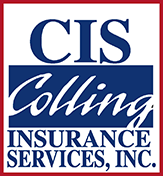It was just starting to snow when you went to sleep in your Lakewood, Colorado home. You slept like a baby and then woke up and fixed yourself a cup of coffee. As you reached for a blueberry muffin, you happened to look out the window and were startled to see that your neighbor’s tree fell on your property. Worse yet, a huge limb landed right on top of your brand new Jeep.
Immediately, you slip on a pair of boots and trudge through the foot of snow to report the incident to your friend and next-door neighbor. You are sure that he will be sympathetic to your cause, but instead, he is more upset about his tree than the damage his tree did to your property. You see that he is being very defensive so you leave and call your insurance agent. He says that your neighbor is responsible. Your neighbor says it was an Act of God and he will not be held responsible for the damage to your property.
The law is rather straight forward when it comes to who is liable. If your tree falls on your neighbor’s property, you are only responsible if you were negligent. That sounds reasonable except that it is often extremely hard to define negligence. What constitutes negligence? If your tree was obviously dead or diseased, you should have known that it could topple. A reasonable person could anticipate that a heavy coating of snow might cause the tree to fall.
On the other hand, if your tree was healthy and full of leaves, you might not know that it was unstable. Most cases are difficult to prove. They can take a long time to litigate. If your neighbor’s tree fell on your property, it can be hard to determine who is liable. The best thing to do is contact your insurance agent and allow them to deal with your neighbor and your neighbor’s insurance company.




 Email an Agent
Email an Agent


 Click to Call
Click to Call Get Directions
Get Directions